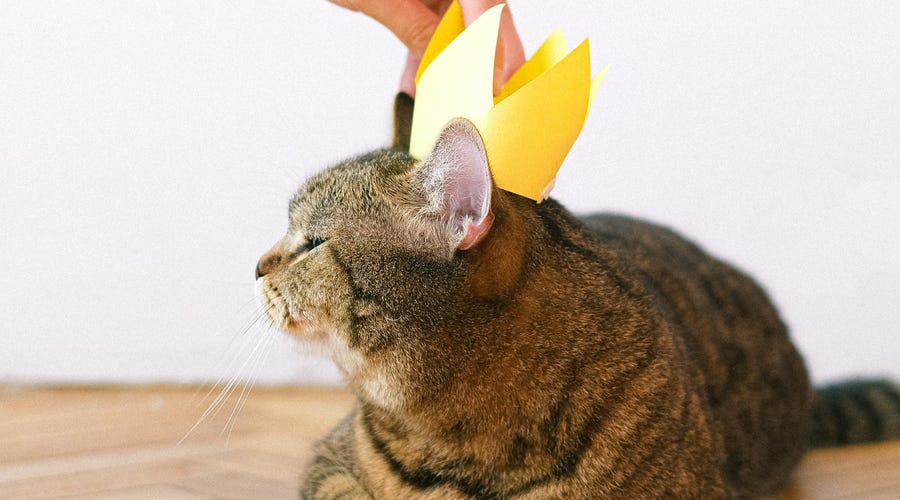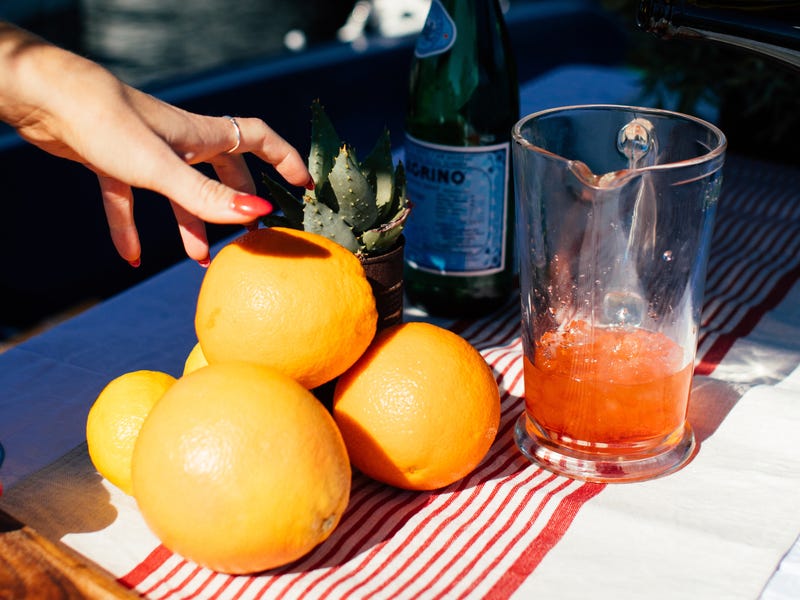
King in Italian & more: 127 royal words to be your crowning glory
Author: Jessica Maggi
If you’re planning to become royalty one day, you'll need to know everything about their lingo. And hey, we all know that can happen… Think of Grace Kelly, Princess of Monaco, Kate Middleton, Duchess of Cambridge, and Meghan Markle, Duchess of Sussex.
There's quite a lot to learn, actually. We’re here to help! We've gathered all the titles, words, verbs, phrases, sayings, and expressions you need to know. In this Italian lesson today, you’ll learn how to say:
- king in Italian;
- queen in Italian;
- prince in Italian;
- princess in Italian;
- royal in Italian;
- royalty in Italian;
- monarchy in Italian.
These are terms that you’ll often come across not only in tabloid magazines and TV shows, but also in newspapers, newscasts, novels, and history books. Royal terms like queen, princess, and little prince are also frequently used as terms of endearment, and sweet nicknames for romantic partners, children, and loved ones.
Ready to have new Italian words at your command? Grab your tiara, have a look at the following tables, and take note. Before you know it, you’ll be using royal terms in Italian like a true local.
Let’s get started!

How do you say royals in Italian
The general word for royals is “i reali” in Italian. The singular form is “reale,” which is rarely used. Royal is defined as a member of a kingdom or monarchy. The Italian word for monarchy is “monarchia,” singular, and “monarchie,” plural.
An example of the word royal used as an adjective is the phrase "royal family" which means the family of kings, queens, princes, and princesses. The Italian word for royal family and royalty is “famiglia reale,” singular, and “famiglie reali,” plural.
Read through the list, and pronounce every word out loud to practice your pronunciation.
| English | Italian | IPA | Pronunciation |
| Royalty | Reali | [reˈalɪ] | reh-ah-leeh |
| Royal family, royalty | Famiglia reale | [famˈiʎa reˈale] | pha-meeh-wlhee-ah reh-ah-leh |
| Nobility | Nobilità | [nobilitˈa] | noh-beehl-tah |
| Noble | Nobile | [nˈɔbile] | noh-beeh-leh |
| Aristocracy | Aristocrazia | [aristokrat͡sˈia] | ah-reeh-stoh-krah-tseeh-ah |
| Aristocrat | Aristocratico, aristocratica | [aristokrˈatiko] [aristokrˈatika] |
ah-reeh-stoh-krah-teeh-koh ah-reeh-stoh-krah-teeh-kah |
| Blue blood | Sangue blu | [sˈaŋɡwe blˈu] | sahn-gooh-eh blooh |
| Monarchy | Monarchia | [monarkˈia] | moh-nahr-keeh-ah |
| Absolute monarchy | Monarchia assoluta | [monarkˈia as͡solˈuta] | moh-nahr-keeh-ah ah-soh-looh-tah |
| Constitutional monarchy | Monarchia costituzionale | [monarkˈia kostitʊt͡sionˈale] | moh-nahr-keeh-ah koh-steeh-tooh-tseeh-oh-nah-leh |
| Monarch | Monarca, regnante | [monˈarka] [reɲˈante] | moh-nahr-kah rehnyahn-teh |
| Sovereign | Sovrano, sovrana | [sovrˈano] [sovrˈana] |
soh-vrah-noh soh-vrah-nah |
How to say queen in Italian
Queen is the title given to a female reigning monarch. The word for queen in Italian is “regina.” The plural form is “regine.” As you can see, there’s a little “e” at the end of the word “regine.” Be sure to pronounce it clearly.
| English | Italian | IPA | Pronunciation |
| Queen | Regina | [red͡ʒˈina] | reh-jeeh-nah |
| Queens | Regine | [red͡ʒˈine] | reh-jeeh-neh |
| Your Royal Highness | Sua Altezza Reale | [sˈua altˈet͡sːa reˈale] | sooh-ah ahl-the-tsah reh-ah-leh |
| Little queen | Reginetta | [red͡ʒinˈetːa] | reh-jeeh-neht-tah |
| Little queens | Reginette | [red͡ʒinˈetːe] | reh-jeeh-neht-teh |
Other terms related to the word queen in Italian
The word “regina” also refers to the most powerful chess piece on the board, as well as the queen in a deck of cards. Many other terms, phrases, sayings, and expressions are related to the word queen in Italian, which is also used as a romantic nickname for girlfriends, wives, and romantic partners to mean that they are beautiful and special.
Check out the table below for a list of Italian phrases, words and expressions, with notes about pronunciation and context.
| English | Italian | IPA | Pronunciation | Context or meaning |
| God save the queen! | Dio salvi la regina! | [dˈio sˈalvɪ lˈa red͡ʒˈina] | deeh-oh sahl-veeh lah reh-jeeh-nah | An expression of patriotism. |
| Queen regent | Regina reggente | [red͡ʒˈina red͡ʒːˈɛnte] | reh-jeeh-nah reh-jehn-teh | A queen reigning in behalf of another person. |
| Queen regnant | Regina regnante | [red͡ʒˈina reɲˈante] | reh-jeeh-nah rehnyahn-teh | A female monarch, who reigns in her own right. |
| Queen Mother | Regina madre | [red͡ʒˈina mˈadre] | reh-jeeh-nah mah-dreh | Mother of a reigning monarch. |
| Queen consort | Regina consorte | [red͡ʒˈina konsˈɔrte] | reh-jeeh-nah kohn-sohr-teh | The wife of a reigning king. |
| Queen's Counsel | Avvocato della corona | [avvokˈato dˈella korˈona] | ah-voh-kah-toh dehl-lah koh-roh-nah | High-ranking barrister. |
| Beauty queen | Reginetta di bellezza | [red͡ʒinˈetːa dˈi bellˈet͡sːa] | reh-jeeh-neht-tah deeh behl-leh-tsah | The winner of a beauty contest. |
| Carnival Queen | Regina del Carnevale | [red͡ʒˈina dˈel karnevˈale] | reh-jeeh-nah dehl kahr-neh-vah-leh | A woman who heads a Carnival parade. |
| Queen of the kitchen | Regina del focolare | [red͡ʒˈina dˈel fokolˈare] | reh-jeeh-nah dehl phoh-koh-lah-reh | A euphemism for housewife. |
| To be stuck up | Darsi arie da regina | [dˈarsɪ ˈarie dˈa red͡ʒˈina] | dahr-seeh ah-ree-eh dah reh-jeeh-nah | Haughty, arrogant attitude, referring to a woman who considers herself superior to others. |
| To be a queen of virtue | Essere una regina di virtù | [ˈɛs͡sere ˈuna red͡ʒˈina dˈi virtˈu] | ehs-seh-reh ooh-nah reh-jeeh-nah deeh veehr-tuh | To have many positive qualities. |
| Queenly | Da regina | [dˈa red͡ʒˈina] | dah reh-jeeh-nah | Magnificent. |
| Queen bee | Ape regina | [ˈape red͡ʒˈina] | ah-peh reh-jeeh-nah | Woman in a powerful position. |
| Queen of Hearts | Regina di Cuori | [red͡ʒˈina dˈi kʊˈɔrɪ] | reh-jeeh-nah deeh kooh-oh-reeh | A fictional character in the 1865 book Alice's Adventures in Wonderland by Lewis Carroll. |
| You are my queen | Sei la mia regina | [sˈɛi lˈa mˈia red͡ʒˈina] | seh-eeh lah meeh-ah reh-jeeh-nah | Expression of endearment. |
| Queen of pop | Regina del pop | [red͡ʒˈina dˈel pˈɔp] | reh-jeeh-nah dehl pohp | A nickname most commonly associated with American singer Madonna. |
Example sentences using the word queen in different contexts
Let's check out the example sentences we've gathered for you below.
Maria José, moglie di Umberto II, fu l'ultima regina d'Italia prima della proclamazione della repubblica nel 1946.
Maria José, wife of Umberto II, was the last queen of Italy before the proclamation of the republic in 1946.
Da tutta la vita sogno di trascorrere una vacanza da regina in barca a vela.
All my life I’ve dreamed of a queen's vacation on a sailboat.
Elena ci darà molti problemi con le sue smanie di primeggiare e dandosi arie da regina.
Elena will give us a lot of trouble with her eagerness to excel, and by being so arrogant.
How to say king in Italian
King is the title given to the reigning monarch if that monarch is a man. The word for both the singular and plural form in Italian is “re,” which comes from the Latin “rex.” As you can see, the word “re” has the same form in the singular and the plural.

| English | Italian | IPA | Pronunciation |
| King | Re | [rˈɛ] | reh |
| Kings | Re | [rˈɛ] | reh |
| Your Majesty | Sua Maestà | [sˈua maestˈa] | sooh-ah mah-eh-stah |
| Kinglet, male monarch of a small country | Reuccio | [reˈut͡ʃːo] | reh-uh-cho |
| Kinglets, male monarchs of small countries | Reucci | [reˈut͡ʃːɪ] | reh-uh-cheeh |
Other expressions related to the word king in Italian
Note that “re” is also a musical note, the equivalent of D in English. Many other terms are closely related to “re.” The following words, phrases, idioms, and expressions will come in handy if you want to expand the scope of your Italian knowledge. Have a look!
| English | Italian | IPA | Pronunciation | Context or meaning |
| Long live the king! | Lunga vita al re! | [lˈuŋɡa vˈita ˈal rˈɛ] | loohn-gah veeh-tah ahl reh | An expression of patriotism and hope for the long life of the monarch. |
| Kingship | Regalità, sovranità | [reɡalitˈa] [sovranitˈa] | reh-gah-leeh-tah soh-vrah-neeh-tah |
The fact or position of being a king. |
| King's Counsel | Avvocato della corona | [avvokˈato dˈella korˈona] | ah-voh-kah-toh dehl-lah koh-roh-nah | High-ranking barrister. |
| Kingdom | Regno | [rˈeɲɲo] | reh-nyoh | A state having a king as its head. |
| Interregnum | Interregno | [interɾˈeɲɲo] | eehn-tehr-reh-nyoh | The time during which a throne is vacant between two successive reigns. |
| Realm | Reame | [reˈame] | reh-ah-meh | A kingdom. |
| Viceroy | Viceré | [vit͡ʃerˈe] | veeh-cheh-reh | Someone who governs in the name of the monarch. |
| Royal | Reale | [reˈale] | reh-ah-leh | Something connected with a king, emperor, or their family. |
| Animal kingdom | Regno animale | [rˈeɲɲo animˈale] | reh-nyoh ah-neeh-mah-leh | A category of living organisms comprising all animals. |
| Plant kingdom | Regno vegetale | [rˈeɲɲo ved͡ʒetˈale] | reh-nyoh veh-jeh-tah-leh | A category of living organisms comprising plants, but excluding algae, fungi, and bacteria. |
| Mineral kingdom | Regno minerale | [rˈeɲɲo minerˈale] | reh-nyoh meeh-neh-rah-leh | All nonliving material. |
| King of kings | Re dei re, gran re | [rˈɛ dˈe͡ɪ rˈɛ] [ɡrˈan rˈɛ] | reh deh-eeh reh grahn reh |
A title of any of various Asian monarchs. |
| Three Kings, The Three Wise Men, Biblical Magi | Re Magi | [rˈɛ mˈad͡ʒɪ] | reh mah-jeeh | The wise men from the east who came to do homage to the infant Jesus. |
| King of the forest | Re della foresta, re della savana | [rˈɛ dˈella forˈɛsta] [rˈɛ dˈella savˈana] |
reh dehl-lah pho-reh-stah reh dehl-lah sah-vah-nah | Lion. |
| More royal than the king, more catholic than the pope, more x than x is. | Essere più realista del re | [ˈɛs͡sere pjˈu realˈista dˈel rˈɛ] | ehs-seh-reh peeh-ooh reh-ah-leeh-stah dehl reh | To stand up for a cause more than those who are directly involved in it. |
| Like a king | Da re | [dˈa rˈɛ] | dah reh | An expression used to describe something that looks as if it was made for a king. |
| The "I want" grass doesn't grow even in the king's garden | L’erba voglio non cresce neanche nel giardino del re | [lˈɛrba vˈoʎo nˈon krˈeʃe neˈanke nˈɛl d͡ʒardˈino dˈel rˈɛ] | lehr-bah voh- wlheeh-oh nohn kreh-sheh neh-ahn-keh nehl jahr-deeh-noh dehl reh | You can't always get what you want. |
| The emperor has no clothes! | Il re è nudo! | [ˈiːl rˈɛ ˈɛː nˈudo] | eehl reh eh noo-doh | Attitude of those who pretend not to see an obvious truth out of flattery and complacency with authority. |
| King cobra | Cobra reale | [kˈɔbra reˈale] | koh-brah reh-ah-leh | A large, poisonous snake native to Southeast Asia. |
| King crab | Granchio reale | [ɡrˈankio reˈale] | grahn-keeh-oh reh-ah-leh | A large, edible spider crab. |
Example sentences using the word king in different contexts
Let’s look at some example sentences.
Vittorio Emanuele III divenne re d'Italia nel 1900, in seguito all'uccisione del padre Umberto I per mano di un anarchico di nome Gaetano Bresci.
Vittorio Emanuele III became king of Italy in 1900, after his father Umberto I was assassinated by an anarchist named Gaetano Bresci.
Il leone, considerato il re della foresta, è l'emblema della potenza reale.
The lion, considered the king of the forest, is the emblem of royal power.
Mia madre mi diceva sempre: “L'erba voglio non cresce neanche nel giardino del re”.
My mother used to tell me, "You can't always get what you want.”
(Literally: My mother used to tell me, "The “I want" grass doesn't grow even in the king's garden.")
How to say princess in Italian
Princess is the title given to the daughters and granddaughters of the sons of a reigning monarch. It’s pretty confusing, I know. The Italian word for princess is “principessa.” The plural form is “principesse.” Note that the final “e” in “principesse” is not silent. Leaving the “e” off, then, is a mistake.
| English | Italian | IPA | Pronunciation |
| Princess | Principessa | [print͡ʃipˈes͡sa] | preehn-cheeh-pehs-sah |
| Princesses | Principesse | [print͡ʃipˈɛs͡se] | preehn-cheeh-pehs-seh |
| Little princess | Principessina | [print͡ʃipes͡sˈina] | preehn-cheeh-pehs-seeh-nah |
| Little princesses | Principessine | [print͡ʃipes͡sˈine] | preehn-cheeh-pehs-seeh-neh |
Other terms and expressions that are related to the word princess in Italian
Principessa (princess) is a very common term of endearment and loving nickname to call your daughter, wife, girlfriend, or romantic partner. The words and phrases in this table, then, will be useful to know if you want to charm and pamper your Italian crush, improve your Italian, and sound like a native speaker!

| English | Italian | IPA | Pronunciation | Context or meaning |
| Crown princess | Principessa ereditaria | [print͡ʃipˈes͡sa ereditˈaria] | preehn-cheeh-pehs-sah eh-reh-deeh-tah-reeh-ah | The female heir to a sovereign throne. |
| Princess and the pea | La principessa sul pisello | [lˈa print͡ʃipˈes͡sa sˈul pizˈɛllo] | lah preehn-cheeh-pehs-sah soohl peeh-sehhl-loh | A literary fairy tale by Hans Christian Andersen about a young woman whose royal ancestry is established by a test of her sensitivity. |
| The Princess and the Frog | La principessa e il ranocchio | [lˈa print͡ʃipˈes͡sa ˈeː ˈiːl ranˈɔkːio] | lah preehn-cheeh-pehs-sah eh eehl rah-noh-keeh-oh | An animated musical fantasy romantic comedy film. |
| You are my princess | Sei la mia principessa | [sˈɛi lˈa mˈia print͡ʃipˈes͡sa] | seh-eeh lah meeh-ah preehn-cheeh-pehs-sah | Expression of endearment. |
Example sentences using the word princess in different contexts
Have a look at the following example sentences.
La principessa Vittoria di Savoia sarebbe la futura regina d’Italia se la monarchia fosse ancora in vigore.
Princess Vittoria di Savoia would be the future queen of Italy if the monarchy were still in place.
“Sei la mia principessa” le sussurrò teneramente all'orecchio.
"You are my princess," he whispered tenderly in her ear.
Mi piacerebbe tatuarmi la scritta “principessa” sopra al malleolo sinistro.
I would like to get the word "princess" tattooed above the left malleolus.
How to say prince in Italian
Prince is the title given to the sons and grandsons of the sons of a reigning monarch. The Italian word for prince is “principe” in Italian. The plural form is “principi.”
| English | Italian | IPA | Pronunciation |
| Prince | Principe | [prˈint͡ʃipe] | preehn-cheeh-peh |
| Princes | Principi | [prˈint͡ʃipɪ] | preehn-cheeh-peeh |
| Princedom | Principato | [print͡ʃipˈato] | preehn-cheeh-pah-toh |
Other words related to prince in Italian
As mentioned previously, “principe” is a common term of endearment used by parents and grandparents towards their sons and grandsons, as well as an affectionate nickname for boyfriends and husbands. What better way to show your significant other how important they are than by telling them “sei il mio principe”? Check out the words and phrases below!

| English | Italian | IPA | Pronunciation | Context or meaning |
| Princely | Principesco | [print͡ʃipˈesko] | preehn-cheeh-peh-skoh | Magnificent, splendid. |
| Prince charming | Principe azzurro | [prˈint͡ʃipe ad͡zːˈurɾo] | preehn-cheeh-peh ah-tsooh-roh | A man who embodies a romantic ideal. |
| Crown Prince | Principe ereditario | [prˈint͡ʃipe ereditˈario] | preehn-cheeh-peh eh-reh-deeh-tah-reeh-oh | The male heir to a sovereign throne. |
| The Little Prince | Il piccolo principe | [ˈiːl pˈikːolo prˈint͡ʃipe] | eehl peeh-koh-loh preehn-cheeh-peh | A novella by French aristocrat, writer, and military aviator Antoine de Saint-Exupéry. |
| You are my prince | Sei il mio principe | [sˈɛi ˈiːl mˈio prˈint͡ʃipe] | seh-eeh eehl meeh-oh preehn-cheeh-peh | Expression of endearment. |
Example sentences using the word prince in different contexts
See some example sentences below.
Icona della prosperità del periodo successivo alla Seconda Guerra Mondiale, l’imprenditore Gianni Agnelli è considerato il vero principe d’Italia.
An icon of post-World War II prosperity, entrepreneur Gianni Agnelli is considered the true prince of Italy.
“Il Piccolo Principe” è uno dei libri più letti e amati nel mondo.
"The Little Prince" is one of the most widely read and loved books in the world.
Anche i cortigiani più conservatori riconoscono i benefici che il principe ha portato.
Even the most conservative courtiers recognize the benefits the prince has brought.
Noble titles and other important monarchy-related vocab in Italian
We’ve created a complete glossary of all the titles and royal words you need to know. Check it out!
| English | Italian | IPA | Pronunciation |
| Empire | Impero | [impˈɛro] | eehm-peh-roh |
| Emperor | Imperatore | [imperatˈore] | eehm-peh-rah-toh-reh |
| Empress | Imperatrice | [imperatrˈit͡ʃe] | eehm-peh-rah-treeh-cheh |
| Heir | Erede | [erˈɛde] | eh-reh-deh |
| Crown | Corona | [korˈona] | koh-roh-nah |
| Throne | Trono | [trˈɔno] | troh-noh |
| Monarchist | Monarchico | [monˈarkiko] | moh-nahr-keeh-koh |
| Anti-monarchist | Antimonarchico | [antimonˈarkiko] | ahn-teeh-moh-nahr-keeh-koh |
| Nobleman | Nobiluomo | [nobilʊˈɔmo] | noh-beeh-looh-oh-moh |
| Noblewoman | Nobildonna | [nobildˈɔnna] | noh-beehl-dohn-nah |
| Noble title | Titolo nobiliare | [tˈitolo nobiliˈare] | teeh-toh-loh noh-beeh-leeh-ah-reh |
| Dukedom | Ducato | [dʊkˈato] | dooh-kah-toh |
| Duke | Duca | [dˈuka] | dooh-kah |
| Duchess | Duchessa | [dʊkˈes͡sa] | dooh-kehs-sah |
| Archduke | Arciduca | [art͡ʃidˈuka] | ahr-cheeh-dooh-kah |
| Archduchess | Arciduchessa | [art͡ʃidʊkˈes͡sa] | ahr-cheeh-dooh-kehs-sah |
| Grand duke | Granduca | [ɡrandˈuka] | grahn-dooh-kah |
| Grand duchess | Granduchessa | [ɡrandʊkˈes͡sa] | grahn-dooh-kehs-sah |
| Countship | Contea | [kontˈɛa] | kohn-teh-ah |
| Count | Conte | [kˈonte] | kohn-teh |
| Countess | Contessa | [kontˈes͡sa] | kohn-tehs-sah |
| Viscount | Visconte | [viskˈonte] | veehs-kohn-teh |
| Viscountess | Viscontessa | [viskontˈes͡sa] | veehs-kohn-tehs-sah |
| Baronate, barony | Baronato | [baronˈato] | bah-roh-nah-toh |
| Baron | Barone | [barˈone] | bah-roh-neh |
| Baroness | Baronessa | [baronˈes͡sa] | bah-roh-nehs-sah |
| Marquess | Marchese | [markˈeze] | mahr-keh-seh |
| Marquise | Marchesa | [markˈeza] | mahr-keh-sah |
| Knighthood | Cavalierato | [kavalierˈato] | kah-vah-leeh-eh-rah-toh |
| Knight | Cavaliere | [kavaliˈɛre] | kah-vah-leeh-eh-reh |
| The Dark Knight | Il cavaliere oscuro | [ˈiːl kavaliˈɛre oskˈuro] | eehl kah-vah-leeh-eh-reh oh-skooh-roh |
| Patrician | Patrizio | [patrˈit͡sio] | pah-treeh-tseeh-oh |
| Patrician | Patrizia | [patrˈit͡sia] | pah-treeh-tseeh-ah |
| Heir apparent | Delfino | [delfˈino] | dehl-pheeh-noh |
| Sultan | Sultano | [sʊltˈano] | soohl-tah-noh |
| Caliphate | Califfato | [kaliffˈato] | kah-leeh-pha-toh |
| Caliph | Califfo | [kalˈiffo] | kah-leeh-pho |
| Maharajah | Maragià | [maɾad͡ʒˈa] | mah-rah-jah |
| Tyrant | Despota, tiranno | [dˈɛspota] [tirˈanno] | dehs-poh-tah teeh-rahn-noh |
| Dynasty | Dinastia | [dinastˈia] | deeh-nah-steeh-ah |
| Castle | Castello | [kastˈɛllo] | kah-stehl-loh |
| Royal palace | Reggia | [rˈɛd͡ʒːa] | reh-jah |
| Royal palace | Palazzo reale | [palˈat͡sːo reˈale] | pah-lah-tsoh reh-ah-leh |
Royal-related verbs in Italian
Here are some useful monarchy-related verbs that will help your Italian vocabulary grow.
| English | Italian | IPA | Pronunciation |
| To reign | Regnare | [reɲˈare] | reh-nyah-reh |
| To crown | Incoronare | [inkoronˈare] | eehn-koh-roh-nah-reh |
| To appoint [sb] to [sth] | Nominare | [nominˈare] | noh-meeh-nah-reh |
| To ascend the throne | Salire al trono | [salˈire ˈal trˈɔno] | sah-leeh-reh ahl troh-noh |
| To knight | Nominare cavaliere | [nominˈare kavaliˈɛre] | noh-meeh-nah-reh kah-vah-leeh-eh-reh |
| To abdicate | Abdicare | [abdikˈare] | ahb-deeh-kah-reh |
| To succeed | Succedere | [sʊt͡ʃːˈedere] | sooh-che-deh-reh |
| To succeed to the throne | Succedere al trono | [sʊt͡ʃːˈedere ˈal trˈɔno] | sooh-che-deh-reh ahl troh-noh |
| To be born to the purple | Avere il sangue blu | [avˈere ˈiːl sˈaŋɡwe blˈu] | ah-veh-reh eehl sahn-gooh-eh blooh |
“Regina di cuori” by Litfiba
“Regina di cuori” (Queen of Hearts) by Italian rock band Litfiba is the second single from the 1997 studio album “Mondi sommersi.”
Litfiba - Regina Di Cuori (1997)
The song “Regina di cuori” exuberantly explores the controversial relationships with the opposite sex, and is perfect to learn new vocabulary, and expressions, such as “finimondo” (chaos), “stratega” (strategist), “spina” (thorn), “tentazioni” (temptations), and “veleno” (poison).
In the lyrics of this great Italian song you’ll also spot lots of great adjectives, such as “meravigliosa” (wonderful), “pericolosa” (dangerous), “eterna” (eternal), and “peccaminosi” (sinful), as well as many verbs in the present tense, such as “confondi” (you confuse), “cerchi” (you look for), “lasci” (you leave), and “trasforma” (it transforms).
Read the lyrics and the English translation.
Here is the Spotify link to the majestic album “Mondi sommersi.” Dedicated to water, it is the fourth chapter of the tetralogy of elements, which began in 1990 with the release of “El diablo.”
Listen to it and sing along, out loud or in your mind, while you sunbathe at the beach, workout at the gym, mow the lawn, walk your dog in your neighborhood, or do household chores. While keeping fit and making your house spotless, you’ll grow your Italian vocabulary, and develop your fluency and confidence the fun way.
Ready to talk like a royal?
You’re now ready to take on the Italian speaking world with all these royal-related vocabulary words and expressions in your bag. Study, practice, and try to use them as much as you can, as often as you can.
If you liked this blog article lesson, discover more free Italian vocabulary articles in our learning Italian blog!
Till next time!


